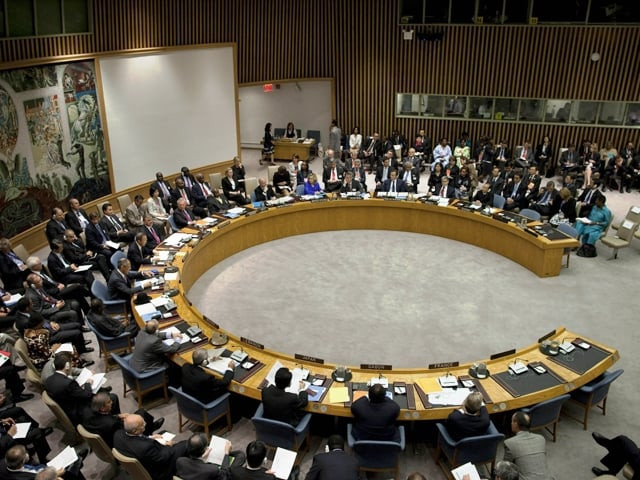A permanent UN SC seat for India?
Expanding the Security Council means making the UN less able to act in crises needing immediate collective response.

A permanent UN SC seat for India?
Pakistan’s Foreign Office spokesman has politely opposed the endorsement, saying it will complicate the process of expanding the UN Security Council and increasing the number of its permanent members. He has referred, as has been done on several past occasions, to India’s bad record on human rights, unsatisfactory relations with its neighbours etc. But the question does not devolve on what Pakistan says.
It is not clear to many why the Security Council should be reformed and how. It was squeezed after the Second World War after learning some bitter lessons from the failure of the League of Nations where the Council had an unlimited number of members and all of them had the power of veto. Such was the dominance of the idea of state sovereignty that the League could take no action during most crises. The UN was based on the ‘realist’ principle of ‘preferred’ sovereignty of a few states.
Under former UN General Secretary Kofi Annan, a document called the Razali Plan (2004) proposed enlarging the Security Council by a further nine seats and presented two alternative models (A and B) outlining how this could be done. Model A responded to Africa’s demand for a region-based increase; Model B was more complex and soon lost support. The new 22-member Security Council will have to be endorsed by a two-thirds majority from over 190 members of the UN. After that, the veto-bearing current permanent members of the Security Council will have to pass the plan.
If the US wants to set up India as a rival of China in Asia, the Chinese veto will block the expansion plan and India’s entry. If India moves to counter China and looks at China’s cooperation with Pakistan as a hostile act, the realpolitik of this expansion will go haywire. Yet the India-China equation is not all bad. Indians have invested in China and visits by Chinese leaders to India have been without any big complications because India does not practically challenge Beijing on Aksai Chin the way Pakistan challenges India on Kashmir.
India has a good international image and has a lot of support even from countries that Pakistan habitually considers its friends — in 2003, Pakistan’s big Arab friends wanted India in the OIC. India has secured the backing of three serious regional contenders for the Security Council — Japan, Germany and Brazil. Among the five permanent members it had France, Britain and Russia already backing it. Now the US is on board too.
India has a democratic system that most Pakistanis now openly envy. Its economic reform under Manmohan Singh since 1991 has succeeded and its variation on the free market doctrines has saved it from the more lethal fallout from the 2008 global crisis. Pakistan’s view of India will not mean much to the international community because of its exaggerated bias. But there are other complications.
Expanding the Security Council means making the UN less able to act in crises needing immediate collective response. It will be like going back to the League of Nations and its incapacities. It will be an acceptance of a multi-polar world, going ideally horizontal but losing the realistic vertical system that delivered. This expansion will take long in realisation because our multi-polar world, with its proliferation of regional rivalries, will not be able to agree readily on a region-based new permanent membership.
If India-China rivalry grows in the region — if that is what America wants — then the expansion plan will be further delayed. But if India and China handle their contradictions well — and that also means Pakistan sorting out its ‘non-state actor’ problems with a more pliable India — then a new 22-member Security Council will become feasible.
Published in The Express Tribune, November 10th, 2010.














COMMENTS
Comments are moderated and generally will be posted if they are on-topic and not abusive.
For more information, please see our Comments FAQ